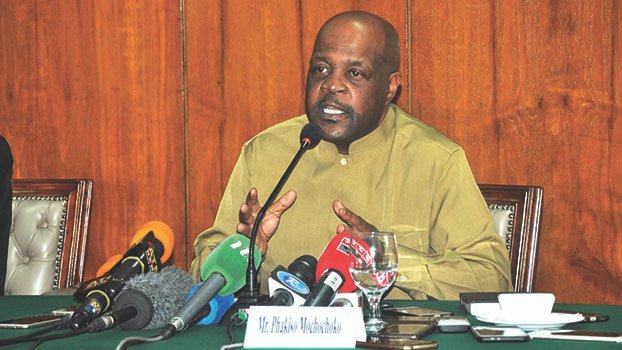Justice will be served to Rohingyas: ICC

The prosecutor’s office of the International Criminal Court (ICC) investigating into Myanmar's alleged crimes against the Rohingya on Tuesday asserted that justice will be served despite Myanmar’s non-cooperation. “It may take one year…it may take two years….three years. But justice will be done,” Phakiso Mochochoko, Director of Jurisdiction, Complementary and Cooperation Division of the ICC Office of the Prosecutor, said at a press briefing in Dhaka, appealing to all to have ‘patience’.
“This is going be to a long and hard process. But the office of the prosecutor is determined to continue until the end of the procedure,” he said.
Mochochoko came to Dhaka to explain the judicial process following the ICC’s permission to top Prosecutor Fatou Bensouda in November that her office can carry out the full investigation into the alleged crimes against Rohingyas. Myanmar is not a state party to the Rome Statue. So it has no obligation to cooperate with the court. Myanmar refused the prosecutor’s team, which is currently collecting evidence in Bangladesh, entry into the country.
Mochochoko said Myanmar’s refusal to cooperate with them is a challenge. “But it’s not something insurmountable challenge”. He said they had been able to investigate and prosecute before to the individuals of the countries who refused them to cooperate and entry into their territories. But this refusal can delay the process a ‘little bit’.
“The reality is that ICC sometimes takes quite a long time. But ultimately justice will be done and somebody will be brought to justice for the crimes against Rohingyas. This is the pledge we are making to you and to Rohingya people as well,” he said.
Bensouda in July last year requested an investigation be open into the alleged crimes committed since October of 2016, concerning Rohingyas.
At that time, her Office’s preliminary examination found “a reasonable basis” to believe that at least 700,000 Rohingya were deported from Myanmar to Bangladesh “through a range of coercive acts causing suffering and serious injury.” Under the Rome Statute that created the Hague-based ICC, which highlights crimes against humanity as one of its four crucial international crimes, the top Prosecutor concluded sufficient legal conditions had been met to open an investigation.
While Myanmar is not a State party to the treaty, Bangladesh ratified the Statute in 2010, meaning authorisation to investigate does not extend to all crimes potentially committed in Myanmar, but will focus on violations committed in part on Bangladeshi territory, the ICC said in July.
Mochochoko said the crimes being investigated here is the ‘crime of deportation’. “It’s a cross-border crime. It’s started in Myanmar which is not a state party, but ended up in Bangladesh which is a state party,” he said, adding that if the displacement happened inside Myanmar, then ICC would not have jurisdiction.
“According to law, people are forced to move to another country. Once they cross into another country, the judges of ICC got jurisdiction,” he explained. He also hailed Gambia’s move which filed a case with the UN’s International Court of Justice (ICJ) that asked Myanmar to take provisional measures to protect Rohingyas.
“This is a step forward,” he said, adding that they are also working closely with the Gambia lawyers for better coordination and exchange of information to avoid duplicity. He said the ICJ is dealing with the dispute between the states – Gambia versus Myanmar. The ICC is finding the specific person or individual who committed the crimes such as murder and rape to bring them to book.
The penalty can be maximum life sentence since the ICC does not have death penalty provision. Arresting people from the non-party state like Myanmar will also be another challenge for the ICC. “But this is not peculiar challenge to ICC,” Mochochoko said, adding that they have their own methods. Currently 15 arrest warrants of the ICC remained outstanding.



